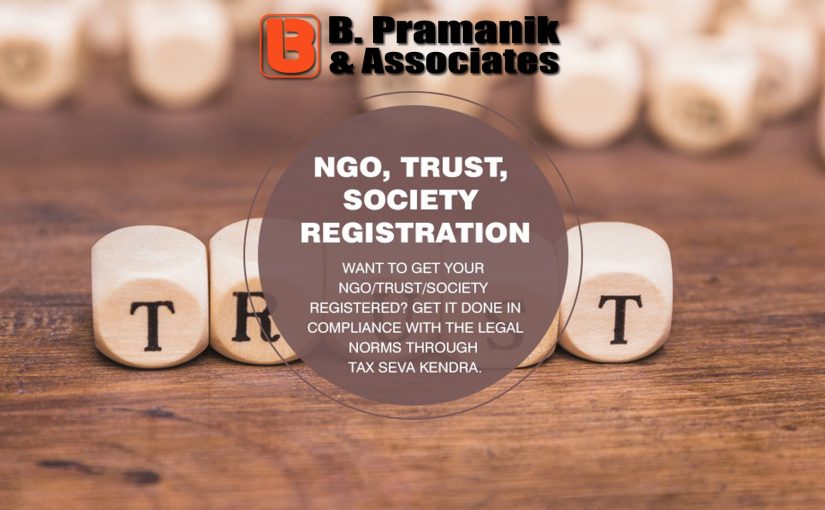
Why is Competition Law Called Antitrust?
The Real Goal of Antitrust Regulation:-
The goal of the antitrust laws is to foster and safeguard competition, or competitive processes, in particular “lines of commerce” or “relevant markets.”
They should only serve this purpose.
They are not meant to penalise large corporations solely for their size or for their economic success.
Most crucially, neither in their fundamental design nor in their actual application, the antitrust laws have ever been anti-market or anti-business.
Instead, the antitrust rules are there to safeguard markets that are unrestricted by excessive public or private trade barriers.
They are therefore designed to encourage market economics and competition in the majority of marketplaces while preventing the abuses that occasionally occur in various sectors.
Subject to very few exceptions for patents, copyrights, and public franchise rights, the idea behind these laws is that there should be vigorous competition in every market: If there are many sellers actively competing in each market to sell a specific kind of good or service to paying customers, no seller will be able to unfairly take advantage of the buyers; instead, each seller will be required to offer its goods or service on appealing terms.
The Antitrust Law’s History:-
So why is it referred to as “antitrust”?
- The reason is that these regulations were initially created to prevent abuses that were being threatened by or imposed by the massive “trusts” that formed in the late 19th century.
- These trusts had complete national market control over rail transportation, steel, petroleum, banking, and associated industries, or threatened to do so.
- To ensure that these trusts did not permanently erode competition in these markets or others, the antitrust laws were put in place.
Business-unfriendly or pro-competition?
- The antitrust laws promote and safeguard market economics on the grounds that societies thrive greatest when they are built on a foundation of fierce competition:
- This theory holds that competition brings out the best in each of us by keeping each of us alert and conscious that if we do poorly, we will be passed over in favour of someone who can perform better.
Because it accurately comprehends and foresees true human nature and human psychology in action, this severe logic works incredibly well.
The Besetting Flaw of Market Economics:-
- The antitrust rules are not intended to punish or demolish successful, profitable businesses, not even the era’s most powerful global monopolies.
Instead, these laws are intended to correct or moderate the basic defect that seems to be inherent in unrestrained competition.
- In other words, market economies have the following inherent contradiction, which the antitrust laws “correct”:
- One company or a group of significant companies frequently emerge to control the whole market in many important markets.
Once this occurs, there is no longer any rivalry in this market, or at best, it is reduced to a shell of what it once was.
- Antitrust laws offer defence and remedies in this situation.
The antitrust laws are more explicitly used to prevent and correct improper acquisition and abuse of market power.
- These laws specifically prohibit two types of behaviour: (1) monopolisation, or the use of “anti-competitive measures” to gain, maintain, or increase monopoly power in a particular market; and (2) unlawful restraints of trade, or actions taken jointly by two or more independent actors that unfairly stifle “competition on the merits” in a particular market, resulting in higher prices, worse service, a lack of innovation, or a reduction in options.
Why do these rules exist?
- Because unrestricted market competition is assumed to be the most effective way to promote long-term prosperity and riches for the greatest number of people by the antitrust laws.
- However, when unbridled competition is put into action, it frequently results in the creation of stifling monopolies and oligopolies that exploit their clients unfairly while impeding innovation and commercial excellence.
- The antitrust laws aim to correct this paradox, which is the main and fundamental flaw in market economics.
What Antitrust Laws support?
If antitrust laws are understood correctly, they are designed to address this market contradiction.
They specifically prohibit any monopoly established, maintained, or sought by a company that intentionally destroyed or attempted to destroy its competitors using anti-competitive techniques whose single or real objective was to undercut rival enterprises.
The antitrust rules also prohibit dominant corporations from working together to impose deceptive business practises that tend to undermine “competition on the merits” in any market that they now control or want to control through the deceptive conduct.
The Charter Principles of Antitrust Law:-
- Monopolization.:-
Although having a monopoly is not illegal, doing it through anticompetitive tactics is a significant antitrust crime.
If the following circumstances are established, a defendant firm may be held accountable for unlawful monopolisation in violation of Section 2 of the Sherman Act:
First, it must be established that the defendant company has monopoly power in a clearly defined relevant market. This can be done by providing direct evidence of the defendant’s ability to impose supracompetitive prices or by demonstrating that the defendant accounts for a significant portion of total sales and that its market share is well-protected from new entrants and expansion.
by both new competition and formidable restrictions placed on growth by current rivals.
- Monopolization plots or attempts to do so:-
It is improper for a company to use anticompetitive business methods to try and gain a monopoly.
If it is established that a defendant firm engaged in anticompetitive behaviour with the intent of acquiring a monopoly position in a properly defined relevant market and that there is a “dangerous probability” that the defendant will succeed in the endeavour absent an antitrust investigation, the defendant firm can be held liable for attempted monopolisation in violation of Section 2 of the Sherman Act.
Additionally, a private plaintiff must demonstrate its own antitrust harm.
- Trade restraints:-
In addition to combinations and conspiracies in restraint of commerce, antitrust law forbids contracts that restrict trade.
Any such restraint that violates the law must meet the current definition of “undue.”
Therefore, it is prohibited by the antitrust rules for two or more independent, unrelated businesses to collaborate in order to engage in business practises that undermine the competitive processes in a market that has been appropriately identified as relevant.
There are three types of illegal trade restraints: those that are illegal in and of themselves, those that violate the structural rule of reason, and those that violate the “quick-look” concept.
- Per Se Infractions:-
Setting or manipulating the rates that two or more direct competitors charge their customers is never appropriate.
Price-fixing on a horizontal scale is the offence.
Additionally, competitors cannot divide up markets among themselves according to customers, territories, specific contracts, or product lines (horizontal market allocation). Additionally, competitors cannot plan horizontal group boycotts, which is the coordinated refusal to do business with a supplier, customer, or competitor in order to deny it the supplies or facilities it needs to continue competing in a market.
- Other Infractions:-
Other, more technical wrongs that also qualify as antitrust violations include:
For instance, using exclusive-dealing agreements between two or more businesses is illegal under Section 3 of the Clayton Act if doing so will likely foreclose a significant portion of overall sales in a relevant market for an extended period of time and prevent rival sellers from making enough sales to achieve adequate economies of scale.
The Robinson-Patman Act makes it occasionally illegal for businesses to charge various prices for the same products when selling them to several commercial clients, but only if doing so hurts competition in the seller’s own market, its clients’ markets, or tertiary markets.
How Other Nations Handle Similar Issues:-
During the era of consumer-welfare jurisprudence, the United States has suffered from inadequate enforcement of its antitrust rules, and in my opinion, our antitrust statutes rely too heavily on criminal law.
Blessed or Cursed?
The most successful competitors in every market are ultimately punished, restrained, and burdened by antitrust rules, which, according to critics, severely harms competition.
They contend that the very thing the antitrust laws purport to safeguard, namely market competition, is harmed by them.
These critics believe that the antitrust laws are absurd and contradict each other.
More than that, they are a costly annoyance and a crushing strain to our most successful companies, and in this new era of globalisation and outsourcing, our economy cannot afford such responsibilities.
In many sectors, especially the really crucial ones like telecommunications, energy markets, and several others where there are large “barriers to entry,” a dominant firm or few firms would emerge if there were no antitrust regulations.
Due to the lack of competition from competing businesses, these companies would not only exclude all other competitors but also eventually impose unfair trading conditions on their business partners and ultimate clients, failing to maintain agility and responsiveness.
In reality, this occurs frequently, and the appropriate response is typically antitrust intervention, such as a private lawsuit or public investigation.
Monopolies develop in many different types of commerce when there is unchecked competition.
Monopolies, in turn, have a tendency to become less effective, insensitive to clients, and, most importantly, more prone to impose unfair trading conditions in the markets that they dominate.
Monopolies are not prohibited by the antitrust laws, but it is forbidden for a company to gain or retain a dominant position via commercial methods whose primary goal and impact is to harm competitors’ companies.
The antitrust laws also forbid collusive action, which is when two or more businesses work together to thwart “competition on the merits” in order to raise prices or impose other unfair trading terms on captive customers who have no other options.
The government may seek criminal prosecutions, lengthy prison sentences, and hefty fines as severe antitrust penalties.
To address the basic paradox in market economics, we require antitrust laws:
Competition, which produces the best goods and the most prosperity, often results in monopolisation attempts and trading abuses that can only be stopped by suffocating legislation or well-planned antitrust intervention.
Yes, the antitrust rules are abhorrent, destructive abominations that result from an unresolvable contradiction and subject us all to needless misery and litigation.
However, the antitrust rules have the advantage of being superior to the alternatives, as Winston Churchill may have stated.
How Can We Help?
Our advocate B.Pramanik & Associates antitrust in kolkata will help you all the problems regarding trademark registration.






















































